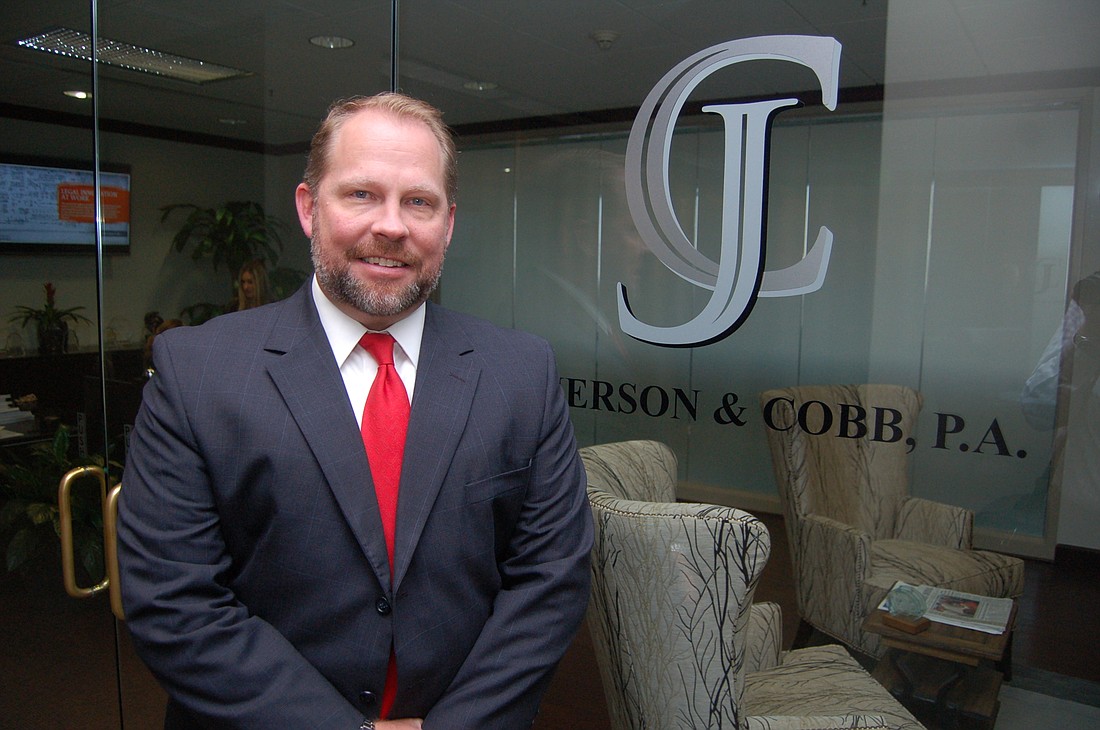
W ith the exception of two 12-month detours nearly 20 years apart, the track of attorney Christopher Cobb’s career has maintained a steady path.
In October, he finished his year as chairman of the state Construction Industry Licensing Board, of which Cobb has been a member since he was appointed in 2012 by Gov. Rick Scott.
The board, a division of the Florida Department of Business and Professional Regulation, is responsible for licensing and regulating the construction industry.
He said he became interested in serving to set himself apart from the more than 300 board-certified construction law attorneys in Florida. It also allowed him to learn more about the trades side of his specialty practice that he began in 2001.
“I gravitated toward the technical side of construction,” Cobb said. “How things come out of the ground is a fascinating process.”
With Hurricane Matthew in 2016 and Irma this year, Cobb’s years as vice chairman and chairman were two of the most challenging in decades for the state’s construction industry, considering the extreme demand for skilled labor in the recovery he said.
“There’s a shortage of contractors, so there’s a big push to get people licensed.”
Cobb said as he continues his service on the board, his personal “big push” will be to curtail unlawful activity in terms of people doing construction work without a license and contractors who do work that’s outside their license.
He said there aren’t reliable statistics on the amount of unlawful construction work that’s performed in Florida, but estimates it’s at least $1 billion a year.
“And as an attorney, I see the end result.”
Cobb’s appointment to the board expired as he left office in October, but he will continue to serve until his replacement is named.
He expects the board will focus on expanding the scope of construction regulation to include establishing a “trenchless technology” license for contractors who provide horizontal boring for underground utilities.
The new Tesla solar roof — technology that makes the entire top of a building or home a solar power generator — hasn’t received product approval in Florida, but Cobb expects it will and that will lead to decisions that will affect licensing and regulation.
“Where does the roofer’s work stop and the solar contractor’s and electrician’s work begin?” he said. “We have to have forward thinking.”
Spending three days each month out of the office to attend licensing board meetings around the state was something he couldn’t have done without he support of his family and firm, Cobb said.
Cobb began his path to a legal career in 1997 at the Florida Coastal School of Law, but he decided to take a detour to pursue a different road — one leading to the baseball diamond.
While majoring in literature at the University of North Florida, Cobb was a four-year walk-on outfielder for the Ospreys baseball team. Each summer, he’d go home to Fort Lauderdale and work in the Montreal Expos camp program.
His hitting skill caught the attention of the team’s scouts, and between his first and second year of law school he had the opportunity to travel to Holland and play for Montreal’s Dutch Major League team.
Cobb said the one-year hiatus from law school was an opportunity to travel throughout Europe — but more important, it made him realize that despite it being his lifelong dream, he wouldn’t be able to make a living in professional baseball.
He returned to Jacksonville and completed his education at Florida Coastal without any doubt.
“When I went over there, I said I wanted to put my head on my pillow in 20 years, know that I did my best, and not have any regrets about baseball,” Cobb said. “Here it is, 20 years later, and I can do that.”